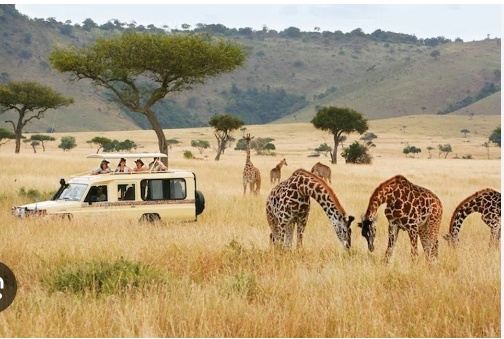Africa, the land of vast savannahs, dense jungles, and diverse wildlife, beckons adventurers and nature enthusiasts from around the globe to embark on the ultimate safari experience. Whether you seek the awe-inspiring sight of a lion prowling the grasslands or the majestic grace of elephants lumbering through the wilderness, planning the perfect African safari requires careful consideration of timing. The best time to go on an African safari depends on various factors, including weather patterns, animal migrations, and personal preferences. Let's delve into the intricacies of timing your African adventure.
Understanding Africa's Season
Africa's vast expanse encompasses a range of climates and ecosystems, from the equatorial rainforests to the arid deserts. Understanding the continent's seasonal patterns is crucial for selecting the optimal time for your safari.
- Dry Season: The dry season, typically occurring during the winter months, varies across different regions of Africa. In East Africa, encompassing countries like Kenya and Tanzania, the dry season typically spans from June to October. Similarly, Southern Africa experiences its dry season from May to October. During this period, the vegetation thins out, water sources dwindle, and wildlife congregates around remaining waterholes, making animal sightings easier.
- Wet Season: The wet season, also known as the green season, occurs during the summer months. In East Africa, the wet season falls between November and April, while Southern Africa experiences its rainy season from November to March. Although the landscape bursts into vibrant greenery during this time, the dense foliage can make spotting wildlife more challenging.
Consideration of Animal Migrations
One of the highlights of an African safari is witnessing the great migrations of wildlife across the savannahs and plains. Understanding the timing of these migrations can greatly enhance your safari experience.
- The Great Wildebeest Migration: Considered one of the most remarkable natural spectacles on Earth, the Great Wildebeest Migration sees millions of wildebeest, zebras, and other herbivores traverse the Serengeti ecosystem in Tanzania and Kenya. The migration typically occurs from July to October, as the herds move in search of greener pastures and water sources, providing unparalleled opportunities for wildlife viewing.
- Okavango Delta Floods: In Botswana's Okavango Delta, the annual floods transform vast expanses of dry land into a lush oasis, attracting a diverse array of wildlife. The floods typically peak between June and August, drawing large concentrations of animals to the region for a perfect Okavango Delta safaris.
- Southern Africa's Wildlife: In Southern Africa, wildlife viewing is excellent year-round, with iconic destinations such as Kruger National Park in South Africa and Chobe National Park in Botswana offering exceptional safari experiences. The dry winter months are particularly favorable for game viewing as animals gather around water sources.
Factors Influencing Your Safari Experience
Beyond weather patterns and animal migrations, several other factors can influence the timing of your African safari.
- Crowds: Peak tourist seasons, typically aligned with the dry months, can result in crowded national parks and higher accommodation costs. Traveling during the shoulder seasons, just before or after the peak, can offer a more intimate safari experience with fewer crowds.
- Photographic Opportunities: Photography enthusiasts may prefer the dry season for its clearer skies, optimal lighting conditions, and better visibility of wildlife against the backdrop of the savannah.
- Specialized Safaris: Some safaris, such as birdwatching or gorilla trekking expeditions, have specific seasons that offer the best opportunities for sightings. Researching the ideal timing for your chosen safari activity is essential for a fulfilling experience.
- Budget Considerations: The cost of accommodations and safari packages can vary significantly depending on the season. Traveling during the low season may offer more affordable options for budget-conscious travelers.
Conclusion
In conclusion, determining the best time to go on an African safari requires careful consideration of various factors, including weather patterns, animal migrations, personal preferences, and budget constraints. While the dry season often offers optimal wildlife viewing opportunities, the wet season can present unique experiences and photographic opportunities amidst lush landscapes. Ultimately, the best time for your African safari depends on your interests and priorities. Whether you choose to witness the Great Wildebeest Migration or explore the Okavango Delta during the floods, the magic of Africa's wilderness awaits, promising an unforgettable journey into the heart of the wild.


No comments yet